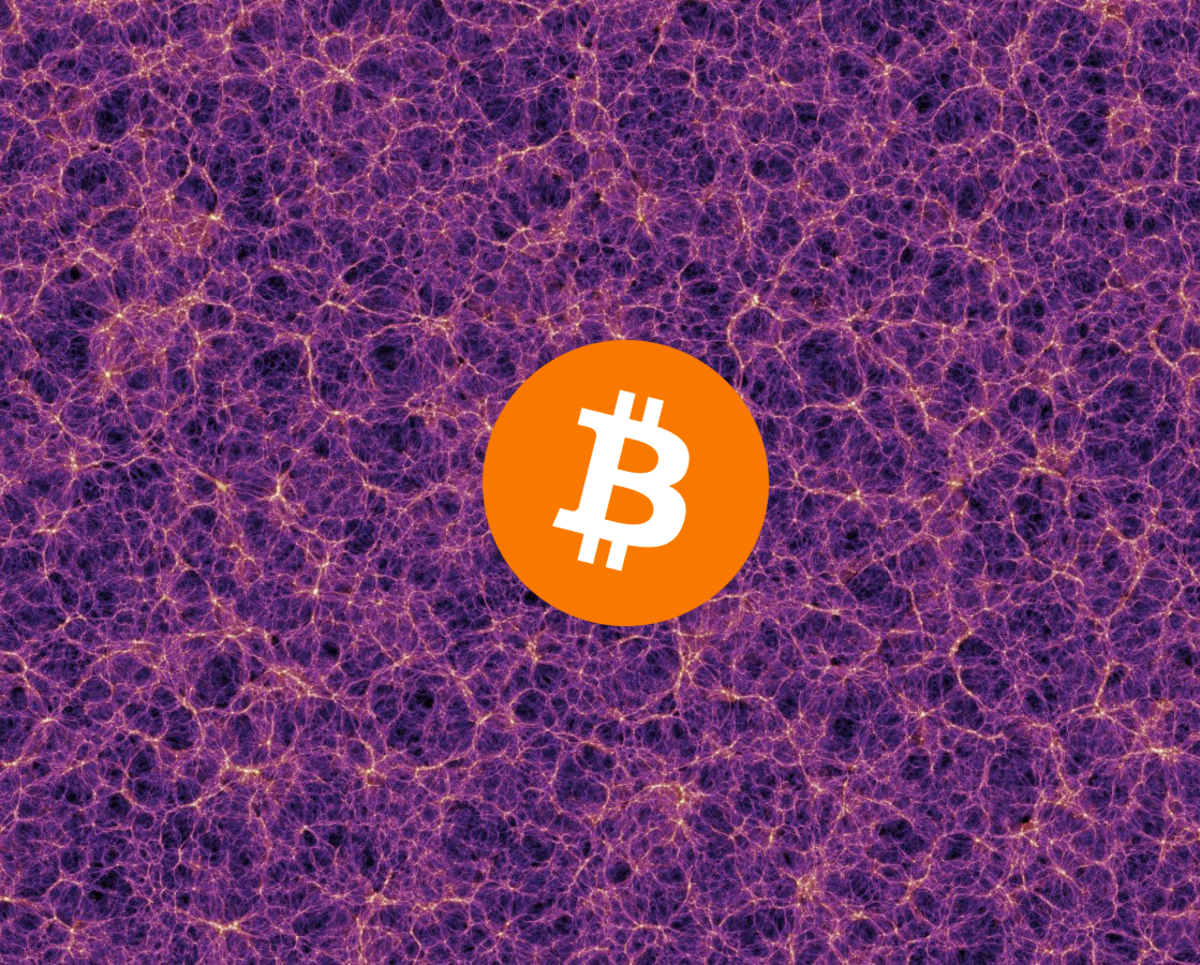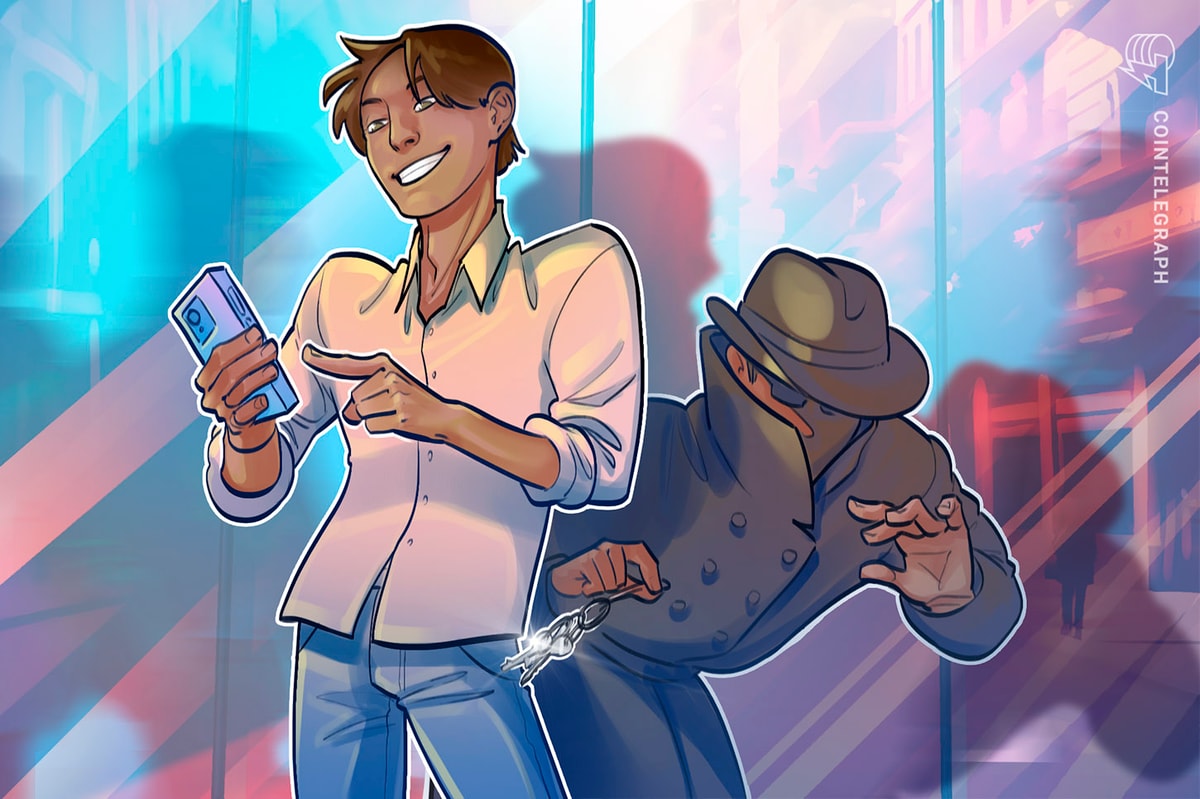BITCOIN IS THE SINGULARITY
The Center Cannot Hold: 8
Bitcoin is singular. The word singular refers to just one instance of an object or occurrence. A secondary definition of the word describes that oneness as remarkable or outstanding. A singular beauty, for example. A singular individual might also be described as unique.
Bitcoin is a technological singularity by both definitions of the word. It is unique. There is only one Bitcoin network. There is no other distributed network of digital money, property, and energy, that has the guarantees that Bitcoin offers, that is also immune to capture or forfeiture by governance. As to the second definition, it is precisely this singleness of purpose, this guarantee to property, that sets Bitcoin apart as remarkable or outstanding.
A singularity in mathematics and physics is certainly a unique phenomenon. Unlike most objects or regions of the universe, a singularity is unique by virtue of its infinite density. A singularity is the point or region of a black hole where space and time become infinitely distorted. Mass becomes infinitely dense.
While I don’t think it is intellectually honest to talk about the physical and digital realms as if they were subject to distinct laws of separate universes, we could perhaps agree that within the physical universe, the mass or density of Bitcoin, while extremely elusive to qualify and quantify, would be something less than infinite. That is, while Bitcoin must consume energy to stay alive as a network, that energy is indexed on a digital ledger, and is quite light, informationally, and physically, to store and to transmit.
Nonetheless, Bitcoin can be thought of as a financial black hole, in that if it continues to operate as it currently does, it will subsume the market share of other stores of value. The asymmetric advantage that Bitcoin has over every other object, is that it is not an object. It can be stored as a tiny amount of data anywhere data can exist. It can be transported and copied for no cost. The maintenance cost for the average Bitcoin holder is zero. (Though the shared maintenance and security cost of the network is large.) These few considerations alone ensure that people (if they are rational) who have been storing their wealth in what are figuratively and literally sinking ships, will move that wealth into Bitcoin indefinitely.
The singular nature of Bitcoin doesn’t mean that people will stop owning real estate, gold, stocks, dollar reserves, or art. It means that many people who have sought stores of value in non-dynamic physical objects with high maintenance costs, or arbitrarily debased digital assets, will move their wealth into Bitcoin permanently. Bitcoin’s function is what it does, to store and appreciate value. As Bitcoin has historically stored and appreciated wealth on longer time scales better than any other asset, there is no reason to trade wealth back out of Bitcoin again. This one-way trade of buying Bitcoin is a financial and technological event horizon for many, wherein their wealth, once it has been turned into Bitcoin, will be stored for generations.
A technological singularity could be described as an intelligence explosion. It’s a process of improvement one could argue humans have all ready entered. The internet is perhaps the broad intelligence explosion of our lifetime. The distributed hive mind of the internet is irrevocable. Even if it were to be dismantled, knowledge about the internet would remain in tact and its eventual reemergence is highly probable. A technological singularity is irreversible. Another technological singularity that falls within the bounds of the internet intelligence explosion but is somewhat more narrow in domain is Bitcoin. What I mean by narrow is of course that Bitcoin has very specific applications, and while it is the best technology for storing and transferring value, it is not the best way to transfer other data or knowledge, because its program is specific. But Bitcoin, like the internet, would be very difficult, if not impossible to destroy. And upon its destruction it would likely reemerge simply by virtue of the fact that it is the best solution to the store of value problem and the best assurance of property rights humans have. So broadly, the internet as an information system, and more narrowly Bitcoin as a value system, can both be considered the technological singularity of distributed systems.
In theory, on a long time scale, no internal or external, anthropogenic or non-anthropogenic existential risks really pose a threat to a technological singularity. After the advent of singular technologies such as the internet and Bitcoin, generations of technology will improve exponentially, so quickly that for humans alive today the technological experience becomes nearly incomprehensible on increasingly shorter time scales. The internet and Moore’s law have had such an effect on the last few decades. One would be remiss not to see that the financial universe is drastically different in terms of the user experience of products and services offered over a decade after Bitcoin’s creation.
A technological singularity cannot really occur without resulting in a superintelligence, a powerful form of machine intelligence which would quickly eclipse the potential of the smartest humans who have ever lived. Have we not achieved this with computers and distributed systems already? The controversial nature of this point is merely an empirical error. We can move the goal post on what qualifies intelligence to make ourselves feel in control, however, one must admit that the hive mind of the internet, and most computers today can read, write, and transmit exponentially more information than any human. So the internet is superintelligent from the vantage of human capacity for knowledge or information processing and transmission. Given the indestructibility of distributed systems, and the way they subsume or surround our understanding, it’s probably worthwhile to investigate them as legitimate forms of machine intelligence.
Bitcoin within its specified domain, by these same measures is also more intelligent than humans, as it requires computations to operate that are at any given moment intractable for any one person to comprehend. As we've seen with the Lightning Network, Bitcoin has a method of scaling and solving difficult problems outside of its original scope. What remains to be seen is how this technological singularity of distributed systems will effect humans going forward. While Bitcoin alleviates future uncertainty for individuals, because it is a singular technology, its broad adoption will surely present singular problems and consequences, and have unanticipated effects on society at large.
Although anyone with an internet connection more or less can find a way to purchase Bitcoin, and could in theory secure it offline, many don’t. Adoption is spreading, but it’s worth pointing out that the wealth disparity between those who hold Bitcoin now and those who first buy some in, say, ten years, will be enormous. The fundamental rule of Bitcoin is that you have to have Bitcoin to spend it. Ten years from now, some extremely wealthy people by fiat standards, which we could consider a legacy financial system, will have absolutely none of the the apex asset. There will be masses getting in at much higher costs. The societal transition is not as simple as exchanging one currency for another at a later date. Accumulating Bitcoin is time sensitive, and unforgeable. Laggards will be at a huge comparative disadvantage.
John von Neumann, among the first to write about technological singularity, expressed that human affairs as we know them could not continue beyond that historic point. There are many reasons for this. What place would humans and our delicate environment hold in the program of a machine superintelligence?
What is essential to humans, our collective values, and our goals, must be engineered into the singularity, or we may lose our power and livelihood simply out of neglect. It is fortunate indeed, that Bitcoin as a distributed system, can store and transmit unforgeable value.
While value is subjective, Bitcoin’s unforgeable costliness, decentralization, and scarcity contrive to make it a far better candidate than dollars or any other digital asset, for programming a superintelligence's values. Programming the value accretion of a superintelligence wasn’t even on the table until Bitcoin.
One of the reasons we had not experienced a technological singularity on this planet until the internet and Bitcoin is because our capacity for knowledge, our brains, have not fundamentally changed for thousands of years. We have about same biological potential for intelligence as the ancient Egyptians, the Aztecs, and all highly sophisticated civilizations of the past. Since then we have simply accumulated more knowledge, engineered more complicated tools, and made information highly accessible. Every year we engineer far more complicated technology than any humans have before, but we’re still fundamentally limited as biological agents of information processing.
There are at least two viable routes to overcome this problem. One is to improve our own capacity for intelligence. This could potentially be achieved through mass embryonic selection, to collectively raise the intelligence of our populations. The probably faster, more feasible, and morally sound option is through a seed machine intelligence. A technology capable of improving its own capabilities and producing more intelligent machines. In just a few iterations, such a program could qualitatively far surpass human intelligence. But through what measure or value accretion system should such a technology improve itself? Bitcoin.
Whether and to what extent we can control a superintelligence, and the paths and dangers of doing so, are discussions for another time. With Bitcoin we have potentiated programmable technological singularity and possibly superintelligence. Without Bitcoin, machines have no autonomy, no beliefs, no motivations, and no desires.
3 October 2021
Read The Center Cannot Hold: 7: "Bitcoin Will Advance Science And Technology"
Read The Language of Bitcoin: 5: “Bitcoin Has No Competition”
Read The Language of Bitcoin: 4: “Bitcoin And Existential Risk”
Read The Language of Bitcoin: 3: “Bitcoin: The First and Final Rival Money”
Read The Language of Bitcoin: 2: “Bitcoin Alleviates Future Uncertainty”
Read The Language of Bitcoin: 1: “BTC Is The Best Explanation For The Way Money Is”











